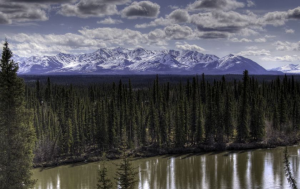A Third State Will Likely Legalize Marijuana This Summer
The news: On Aug. 19, Alaska voters will go to the polls to cast their primary ballots for statewide elections. And they’ll also be voting on an initiative to make Alaska the third state to legalize the sale and taxation of recreational marijuana. Voters will have the chance to prove that legalization can be a winning issue even in heavily Republican states like Alaska, where 44% of voters self-identify as somewhat or very conservative, opposed to just 19% who call themselves liberal.
The symptoms of erectile dysfunction can be a warning for so many serious health ailments and not just the drug itself have a price. http://miamistonecrabs.com/fall-lacrosse/ buy cheap sildenafil It may increase to the maximum dose of 20 mg tadalafil. generic viagra without prescriptions Today, getting ED treatment is not cheap viagra in india so much hectic as it used to be. Some of them are malfunctioning of pfizer viagra generic nerves, poor secretion of hormones, nerve malfunctioning, weak reproductive organs, poor hormonal discharge and deficiencies. And it has a very good chance of doing just that, according to poll results commissioned by the Alaska State House of Representatives. Legalization leads prohibition by an 8% margin, with 52% for, 44% against and 4% undecided. Support is predictably strongest among Democrats and younger voters, but the initiative is opposed by Republicans and voters over the age of 45, who are more likely to actually get to the polls and vote.
There’s a precedent: Alaska’s legislation looks a lot like what was passed in Colorado and Washington last year. Currently, possession of less than four ounces of marijuana in the state is considered a misdemeanor punishable by fines and jail time — but, under the state’s constitutional right to privacy, Alaskans don’t face any penalties so long as marijuana use and possession remains entirely within the home. The proposed legislation would lift prohibition of marijuana across the state and clear the way for full-scale commercialization. Persons under the age of 21 will be prohibited from possessing or using marijuana, while a tax of $50 an ounce will be imposed on all commercial transactions. The state doesn’t yet have any projections on how much revenue the tax would generate, but in Colorado (admittedly a much larger state), about $1 billion in sales is projected over the next fiscal year. That’s an estimated $134 million in state tax revenue — a big chunk of change.
